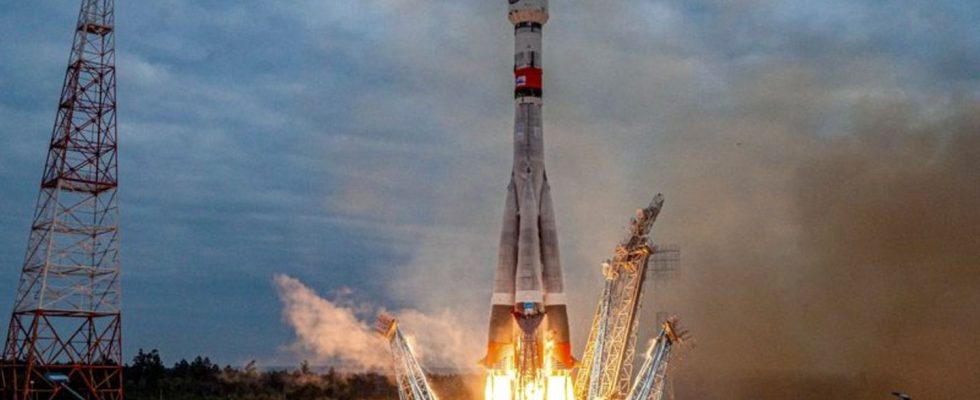Luna-25
Moscow reports “unplanned situation” at lunar probe
Destination moon: The Soyuz 2.1b rocket with the automatic moon landing station “Luna-25” takes off from the Vostochny cosmodrome in the Far East of Russia. photo
© Uncredited/Rokosmos State Space Corporation via AP/dpa
Russia wants to build its own space station on the moon. The Luna-25 spacecraft was launched to explore. But not everything goes according to plan.
Two days before the planned landing on the According to information from Moscow, there was an unexpected incident on the Russian space probe “Luna-25”.
In preparation for touching down soon on the lunar surface, the probe should enter a new orbit of the Earth’s satellite on Saturday at 2:10 p.m. Moscow time (1:10 p.m. CEST), according to the Russian space agency Roscosmos. “During the operation, an unscheduled situation arose on board the automatic station, which did not allow the maneuver to be carried out under the given parameters.”
Specialists are now busy investigating the incident and determining the cause, Roskosmos said. No further details were given. Touchdown on the moon was scheduled for next Monday (August 21). It was initially unclear whether it would stay that way.
Search for a landing site
“Luna-25” is part of the Russian lunar program, which envisages the construction of its own space station on the celestial body by 2040. The probe was launched more than a week ago and entered orbit around the moon last Wednesday. Since then, according to Russian information, the 1,800-kilogram missile has been looking for a suitable landing site. On Thursday, Roskosmos presented a photo of the moon’s surface taken by the probe.
Actually, “Luna” should have been on the road for a long time. The first planned launch date for a lunar probe was 2012. Last year, another launch was planned for May, which was then delayed again due to technical problems. Roskosmos originally worked with the European space agency Esa on the moon program. However, after Russia’s invasion of Ukraine in February 2022, ESA ended cooperation with Moscow.

